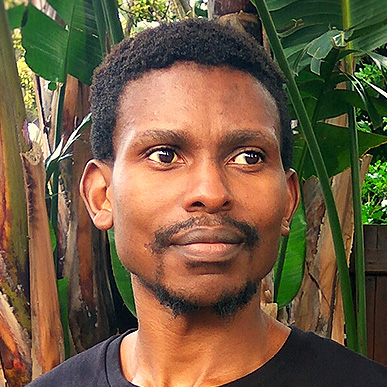Black-skinned Europeans: A journey towards cultural, esteem and identity rehabilitation on the continent, through art and food interventions. Tapiwa Guzha


Ataya: HUMA Interdisciplinary Seminar Series

Project/Paper: Please see articles about Tapiwa’s work below; follow him on Instagram: _tapi_tapi; and check out his calligraphy project Kasvikiro. If you’d like to taste his food for yourself, visit Tapi-Tapi Ice Cream in Observatory, Cape Town!
‘Tapi Tapi Ice Cream Is a Sweet Education on African Liberation’ in Atlas Obscura, 12 February 2021; ‘Indigenous food revivalists are cooking up a spiritual connection’ in the Mail&Guardian, 5 November 2020; and ‘Here's the scoop: Cape Town's Tapi Tapi makes ice cream inspired by African flavours’ in News24, 9 September 2020.
Bio: I am somewhat of a dabbler, choosing to focus on diversity in my life experience and avoiding long-term specialisation. I choose and create work that is centred around the rehabilitation of the African esteem and the empowerment of Africans across the globe, with a focus on mental, emotional, physical, sexual and spiritual well-being. I finished my postdoctoral fellowship in 2019 after 14 years of academic pursuits in molecular biology. Over the last eight years, I have also been a movement coach and sex educator, and the Tapi Tapi initiative is 3½ years old. My latest cultural intervention is Kasvikiro, a visual art project that uses a self-developed calligraphy style to narrate African cosmology stories, creation mythologies and share abstract thoughts and philosophy from the continent.
Topic: After studying, working and living in South Africa for 16 years, I've come to recognise that a catastrophic amount of time, effort, and output is dedicated to living as contemporary Westerners on our continent or in remembrance and celebration of colonial legacies. From language, clothing, music, academic spaces, art, finance, play, health and indeed food, our sensibilities worship the Eurocentric approach, whether intentional or not.
There's a recognisable deficit in the esteem of Africans, in both the individual and collective sense, and I have chosen to contribute to the countless efforts of many before me to adjust this injustice. It's an endless pursuit, but my mission is to use food and art to empower Africans to recognise the value in our diverse identities, histories and unique understandings of the world around us. Food is a powerful tool for creating connections and for celebration.
I'll be sharing some of my approaches that use food as an intervention tool, a great facilitator of conversation and long-lasting change. I'll be focusing on cooking that's additive to a pre-existing history and framework and yet still contributes to the everlasting evolution of culture.